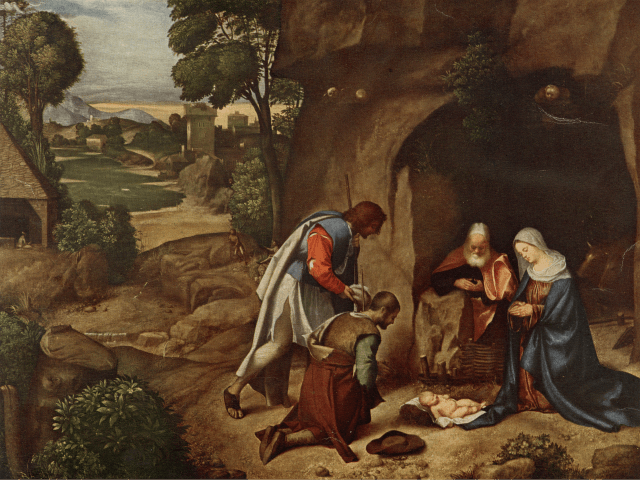Pope Francis held up the three wise men as an example for all humanity in his Epiphany homily Sunday, highlighting their openness to God’s revelation and their readiness to set out to find him.
On December 6, Christians celebrate the feast of the Epiphany, when three Magi from the east followed a star to find the child Jesus in Bethlehem, offering him gifts of gold, frankincense, and myrrh.
The word “Epiphany” signifies the manifestation of the Lord, who “reveals himself to all peoples, represented today by the Magi,” the pope said in his homily at Mass in Saint Peter’s Square. “Thus, the beautiful reality is unveiled of God coming for everyone: every nation, language, and people is welcomed and loved by him.”
The Magi ask King Herod where the king of the Jews is to be born, the pope noted. “They will find him, but not where they thought: not in the royal palace of Jerusalem, but in a humble abode in Bethlehem.”
In the days of Emperor Augustus and the governor Quirinius “none of the powerful realized that the King of history was born in their time,” he added, because “God does not rise to the limelight of the world to reveal himself.”
“We might think: it would have been better if the star of Jesus had appeared in Rome on the Palatine hill, from which Augustus reigned over the world, and the whole empire would immediately become Christian,” Francis suggested. “Or, if he had shone on Herod’s palace, he might have done good, rather than evil. But the light of God does not shine on those who bathe in their own light.”
The Magi, on the other hand, “fulfill the prophecy, they rise up to be clothed in light,” he said. “They alone see the star in the sky: not the scribes, not Herod, no one in Jerusalem. To find Jesus there is a different itinerary is needed, an alternative way to take, his own way, the way of humble love.”
The Magi left their homes and became pilgrims on the ways of God, because “only those who leave their worldly attachments behind to set out on a journey find the mystery of God,” he said.
“Today, brothers and sisters, we are invited to imitate the Magi,” the pope said. “In their gestures there is a close contact with the Lord, a radical openness to Him, a total commitment to Him.”
And although we may not have gold, frankincense, and myrrh, he said, “in this Christmas season that draws to a close, we should not lose the opportunity to offer a beautiful gift to our King, who came for all not on the lavish stages of the world, but in the luminous poverty of Bethlehem.”
While modern biblical scholarship has sought to debunk the gospel account of three wise men visiting the newborn Jesus in Bethlehem, according to extensive research by author Dwight Longenecker, the stories were “historically true.”
In his 2017 book, Mystery of the Magi: The Quest to Identify the Three Wise Men, Longenecker, a scholar and Catholic priest, stated that an impartial study of the relevant data “shows beyond reasonable doubt” that the Magi of Matthew’s gospel were historical figures.
For many years, skeptical scholars rejected the possibility that the infancy stories about Jesus could be historical for a number of reasons, such as their inclusion of supernatural elements, he said.
“The first problem with this is that the skeptic simply assumes supernatural experiences are impossible, therefore any story that contains supernatural elements must be a fanciful invention,” he wrote.
“In the early twentieth century, Bible scholars began to write off the stories of Jesus’ birth—especially the story of the wise men—as pious fantasies,” he continued. “They did so without considering if the stories might, at least, be rooted in real events.”
Because of this prejudice, most scholars never did the necessary research to “sift out the historical element buried beneath levels of legend,” he said.
Father Longenecker recently told Breitbart News that “all the pieces fit neatly to give a plausible explanation of real characters who had a strong motivation to go on a journey to find a newborn King of the Jews.”
The priest said he has succeeded in “piecing together clues from the religion, culture, politics, economics of the Middle East from the time of Jesus’ birth to come to a solid conclusion” regarding the existence of the Magi.
With developing research, Biblical scholars are coming to the conclusion that the New Testament stories of Jesus “are based in eyewitness accounts,” he said, and they provide a remarkable historical record of the time.
Follow Thomas D. Williams on Twitter Follow @tdwilliamsrome

COMMENTS
Please let us know if you're having issues with commenting.